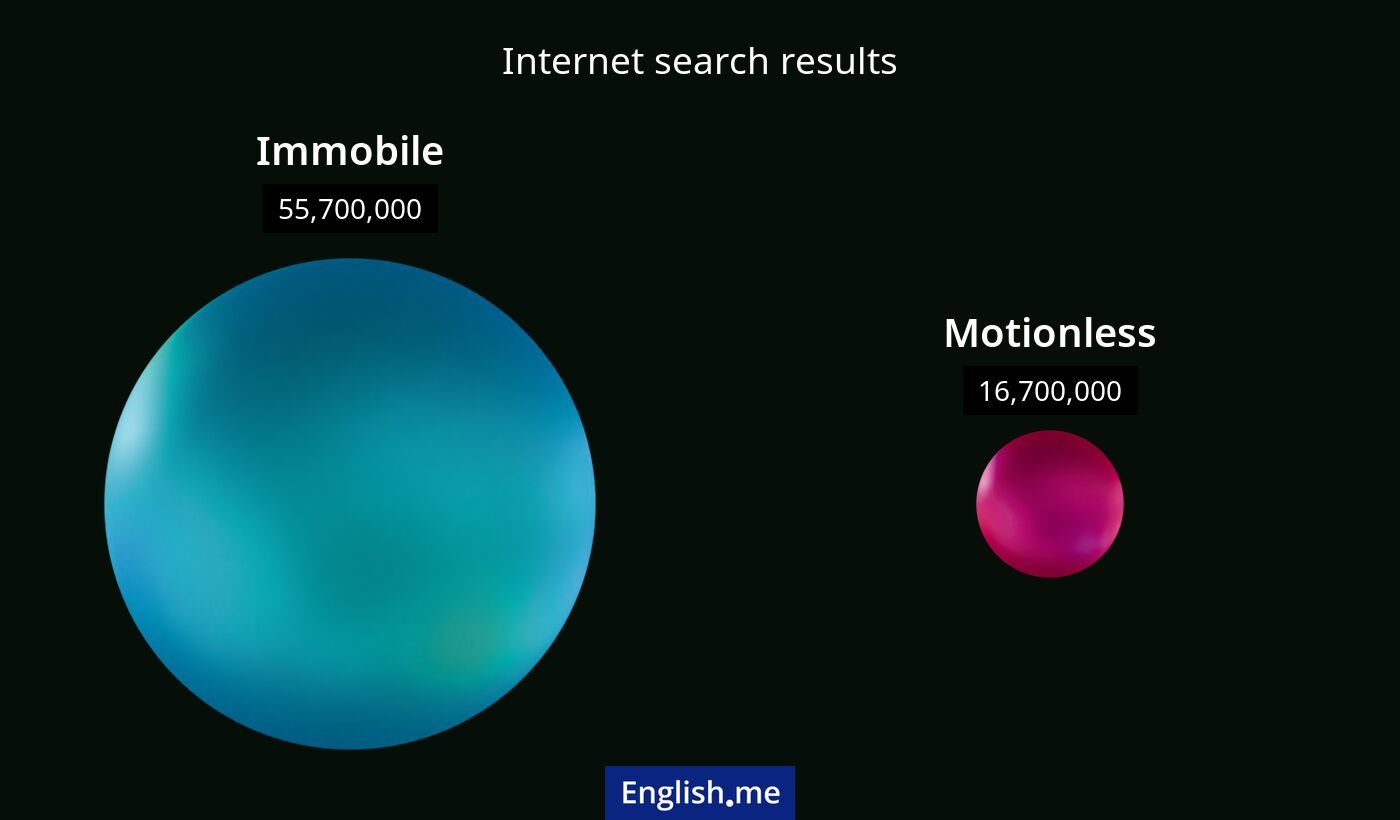"Immobile" vs. "motionless": comparing stillness in words
Reviewed and edited by  Lloyd Cooper 06/11/2024, 18:44
Lloyd Cooper 06/11/2024, 18:44
English.me team member

 What is similar?
What is similar?
Both words describe the lack of movement or the state of being still.
 What is different?
What is different?
Immobile often implies being unable to move due to external constraints or abilities, whereas motionless simply means not in motion but does not imply inability to move.
 Which one is more common?
Which one is more common?

 Examples of usage
Examples of usage
Immobile- The patient remained immobile in the hospital bed due to his injuries.
- The car was immobile after the engine failure.
- The cat sat motionless, watching the bird with intense focus.
- The water was so calm and motionless that it reflected the sky like a mirror.

 English
English español
español française
française italiano
italiano deutsche
deutsche 日本語
日本語 polski
polski česky
česky svenska
svenska Türkçe
Türkçe Nederlands
Nederlands